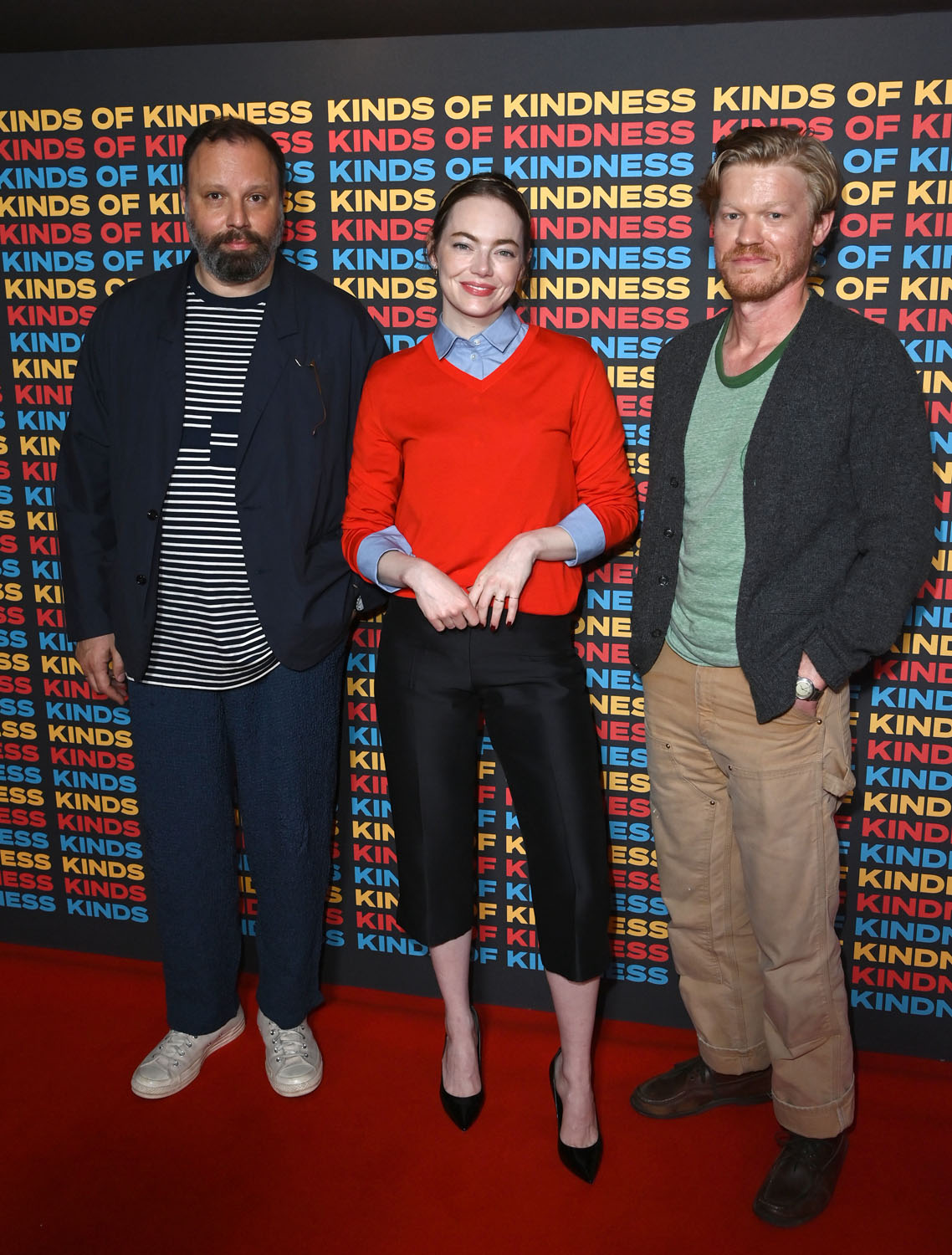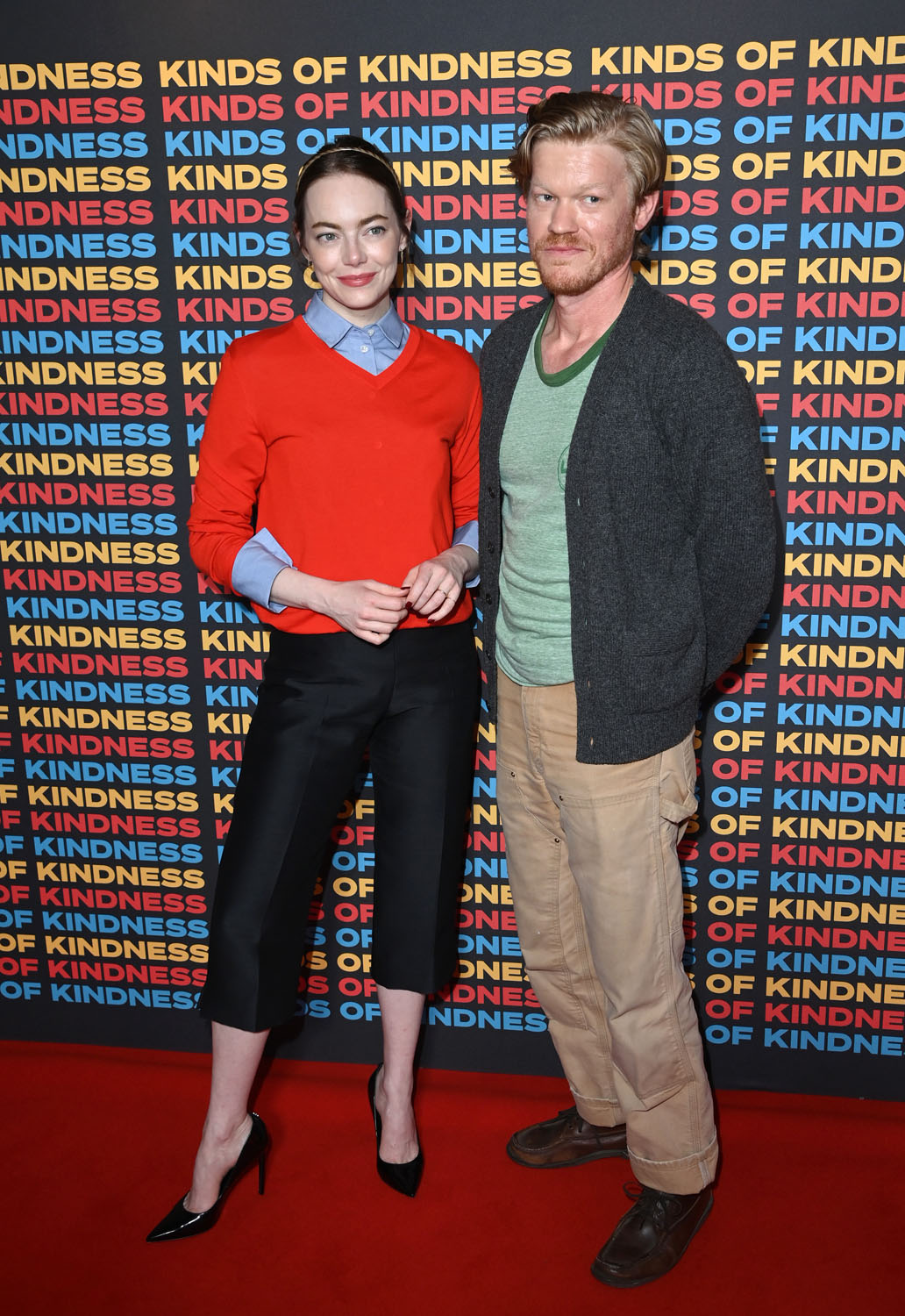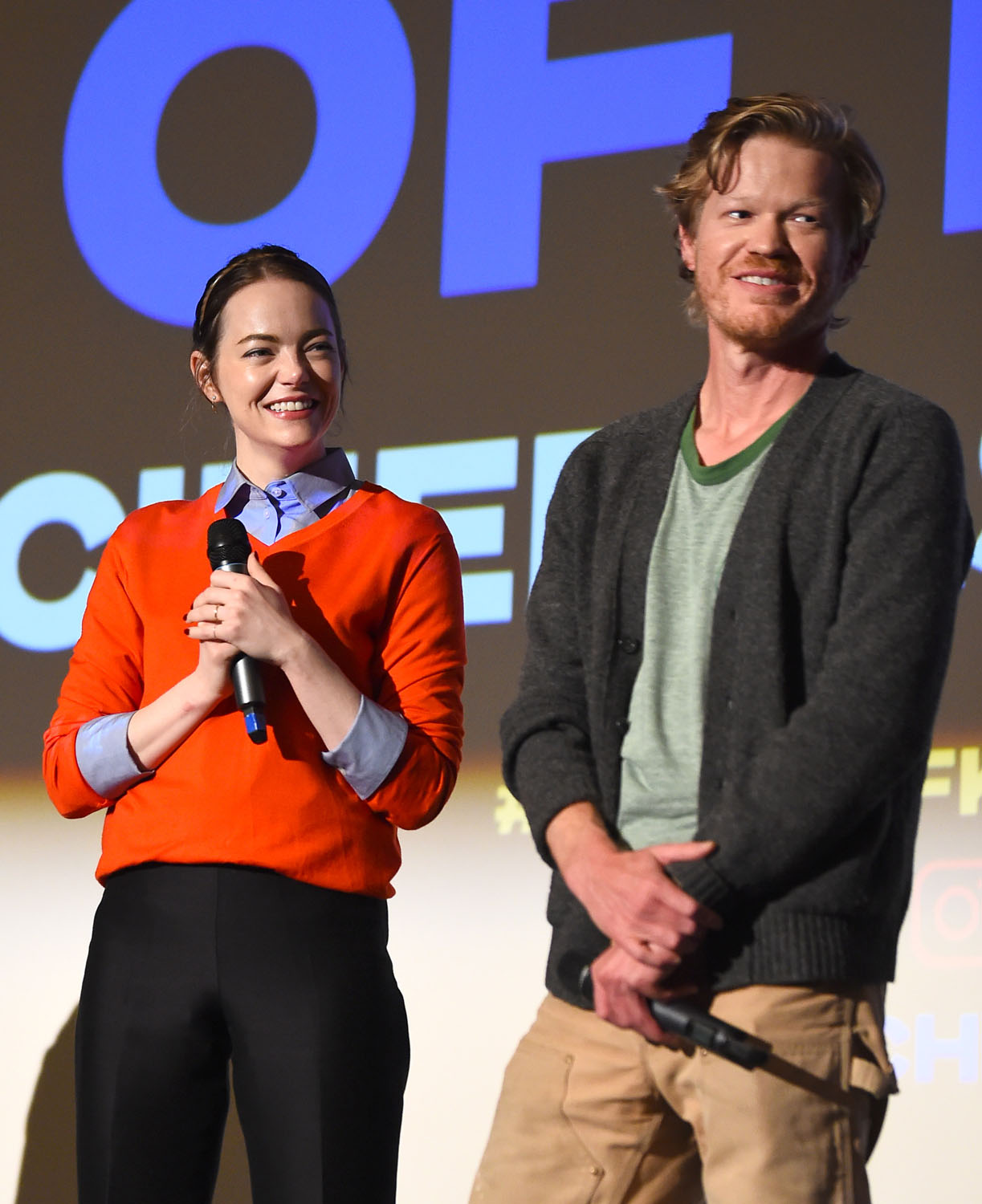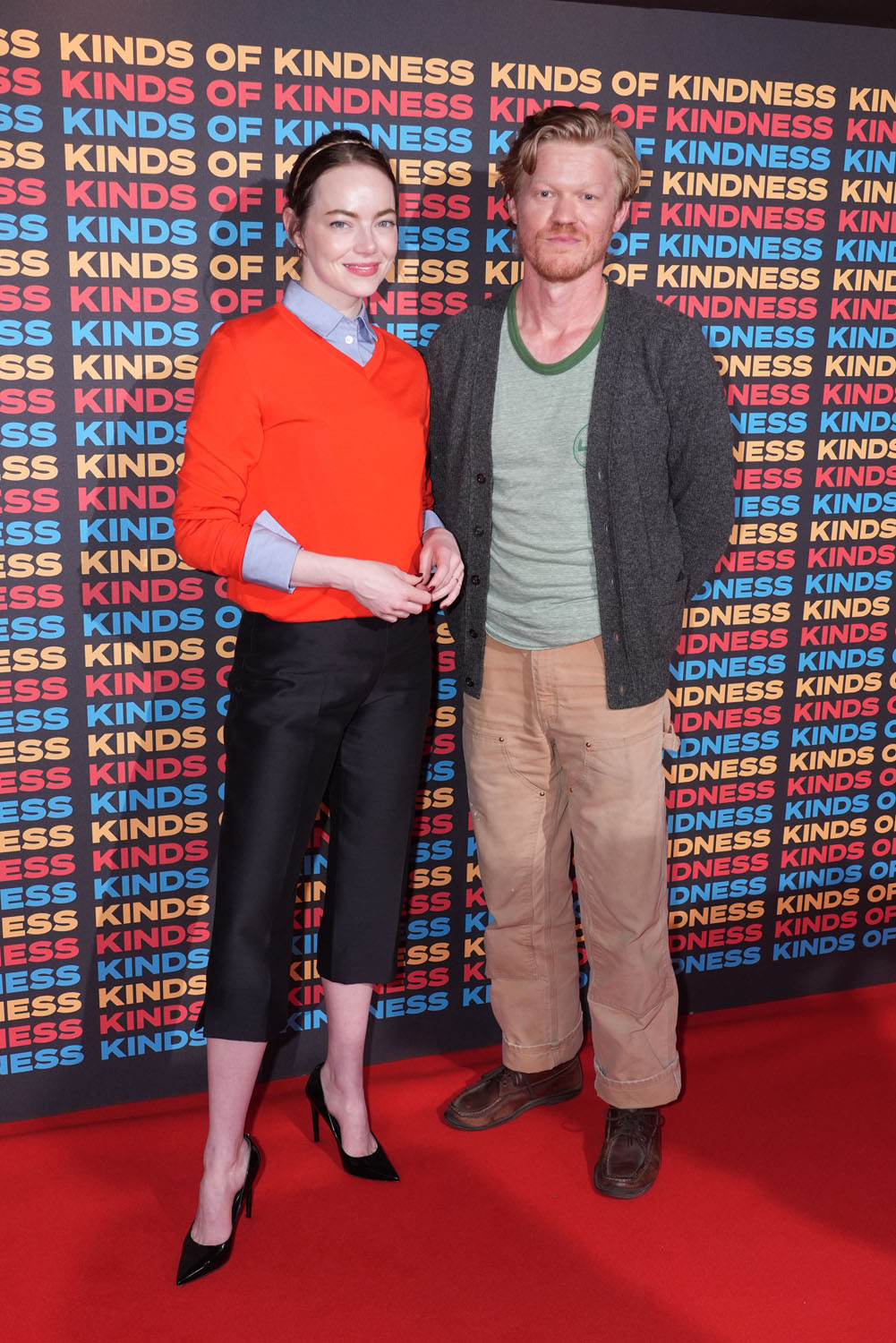Jesse Plemons and Emma Stone in Kinds of Kindness


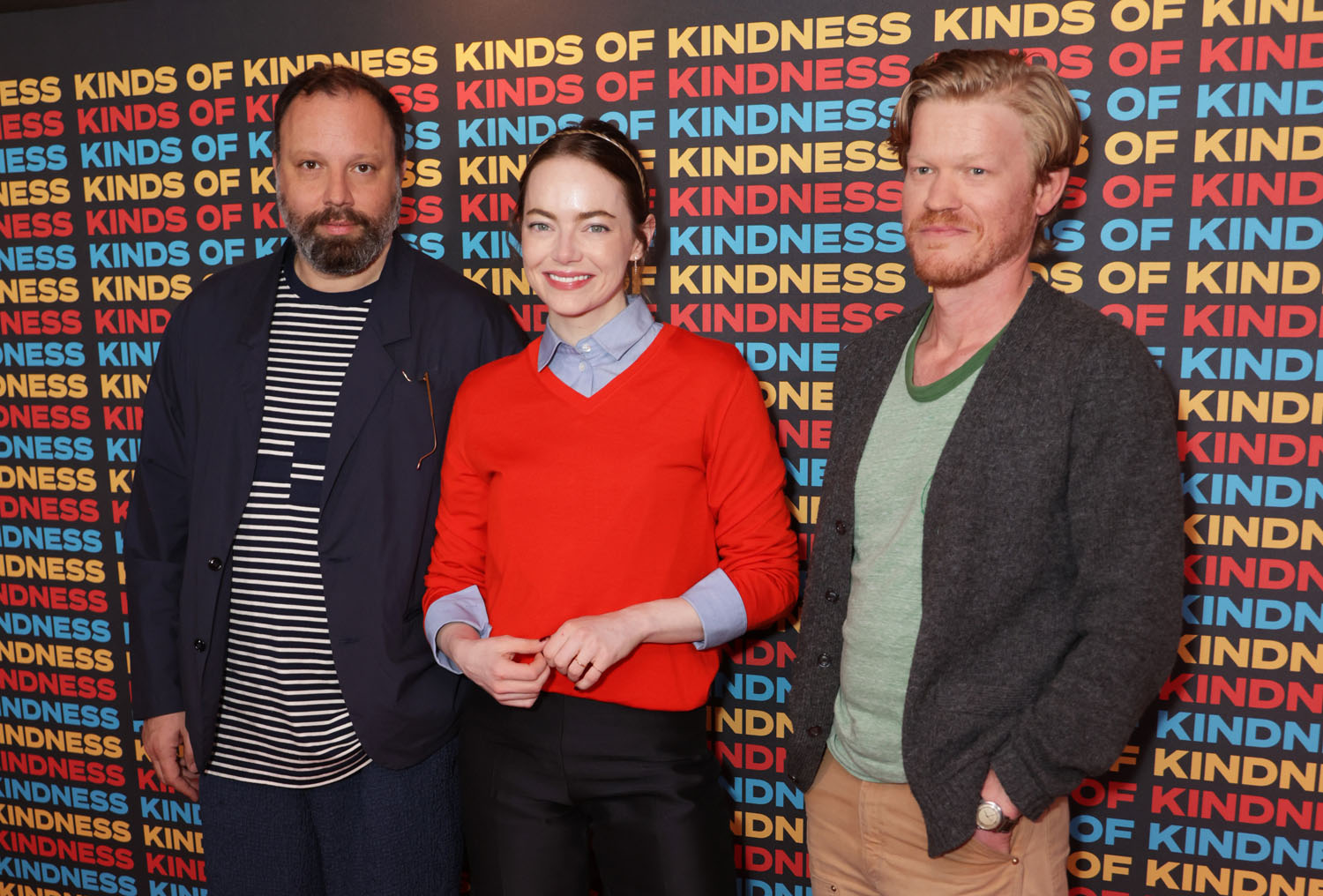
Filmmaker Yorgos Lanthimos has always made films with a challenging worldview, from the visceral cruelty of his breakout film, 2009’s Dogtooth, to the deeply weird love story of his English-language debut, The Lobster, to the mind-f-ck of The Killing of a Sacred Deer, his films are interesting, if unpleasant. 2018’s The Favourite, though, brought mainstream acceptance and critical and commercial success, followed by 2023’s Poor Things and its eleven Oscar nominations, counting four wins.
Following the success of these films, which echo with Lanthimos’s ethos as filtered through others’ writing and input, Lanthimos returns to his roots with Kinds of Kindness, a nearly three-hour opus that will test your patience to varying degrees.
The film is a triptych of loosely related stories in which most of the central cast plays different characters in each segment. The first segment is “The Death of R.M.F.”, in which Robert (Jesse Plemons) is controlled by his boss, Raymond (Willem Dafoe). When Robert refuses to kill a man known as “R.M.F.” (who is played in each segment by Yorgos Stefanakos), events spiral from there. The second segment is “R.M.F. is Flying”, in which Daniel (Plemons again) struggles with the return of his lost-at-sea wife, Liz (Emma Stone), resulting in paranoid chaos and suffering. The third and final segment is “R.M.F. Eats a Sandwich”, in which cult members Emily (Stone) and Andrew (Plemons) search for a woman who can bring back the dead (part of a twin set played by Margaret Qualley). “Sandwich” was my preferred segment, mainly because Emily’s struggle against the desire to see her estranged family feels like the most human and realistic suffering a person might experience.
As someone who likes Poor Things more than many people, I didn’t feel the rust on Lanthimos’s creative engine in that film, but in Kinds of Kindness, I definitely do. If you haven’t seen any of Lanthimos’s pre-Favourite output, Kindness might work better for you, but if you are familiar with Lanthimos’s oeuvre, Kindness feels like a retread. It’s like he’s introducing himself to an audience that only knows him from adapting other people’s work (The Favourite and Poor Things are both written by other people). But nothing in Kindness is sharper than Sacred Deer, weirder than The Lobster, or crueler than Dogtooth. Against those films, Kindness feels like an overdone meal—overproduced, overcooked, over-styled.
It’s hard to call it bad, though, when it looks so good—lensed by cinematographer Robbie Ryan and edited by Yorgos Mavropsaridis—and the acting is so good. Plemons is the standout, but Hong Chau is also very good, and Margaret Qualley hits a lot of fun weird grace notes. Surprisingly Stone, Lanthimos’s most frequent on-screen collaborator, is somewhat of a disappointment. Again, it’s not about “bad” so much as tired. Lanthimos doesn’t get anything new from her that we haven’t already seen in The Favourite and Poor Things (and maybe their short film, Bleat, if you bother to seek that out). Stone is obviously enjoying herself, and Lanthimos is clearly happy to support her playing weirdos, but her performance in Kindness is past the peak, and it feels like she needs to move on from this collaboration, at least for a little while (they have another film on the docket, Bugonia).
Lanthimos likes his collaborators, though. Ryan and Mavropsaridis have worked on previous films with him, as has composer Jerskin Fendrix, and co-writer Efthimis Filippou, who actually co-wrote all of Lanthimos’s films up to The Favourite. It’s part of why Kindness feels so stale to me—I have seen this group of people make a film together before, and Kindness isn’t building on that previous work, it’s just recycling it. As a longtime Lanthimos fan, it’s frustrating, but again, your mileage may vary depending on how much of his work you’ve seen. There’s also a strain of misogyny in Kindness that is more prevalent and meaner than it is in Poor Things—which benefits from Stone’s role as a hands-on producer—and The Favourite, as both films present misogyny as an environmental condition in spite of which women thrive.
But the misogyny in Kindness is less deliberately deployed, and thus uglier. The POINT of Kinds of Kindness IS the ugliness, as it is with all of Lanthimos’s work, but in the past, he has been a little more careful with this particular tool, using it in more specific and revealing ways (such as the women of The Favourite wresting immense social power in an age meant to strip them of all agency). Here, misogyny just becomes part of the overall miasma of misery and nihilism, which is, again, the entire point of the film, but without any of the interesting social experimentation of films like Dogtooth, The Lobster, and Sacred Deer to enliven the proceedings, the result is just depressing.
Yorgos Lanthimos has never been an uplifting filmmaker. That one of his films is bleak and depressing is not surprising. What IS surprising is how tedious Kinds of Kindness is, as if Lanthimos has simply run out of things to say. It’s like this film reveals the limits of nihilism, that if you believe in nothing, there are only so many ways to express the inherent misery of existence before that becomes just another bugaboo. Yorgos Lanthimos has made some exceptional films, but it finally feels like it’s time for him to find a new story to tell.
Kinds of Kindness is now playing exclusively in theaters.

